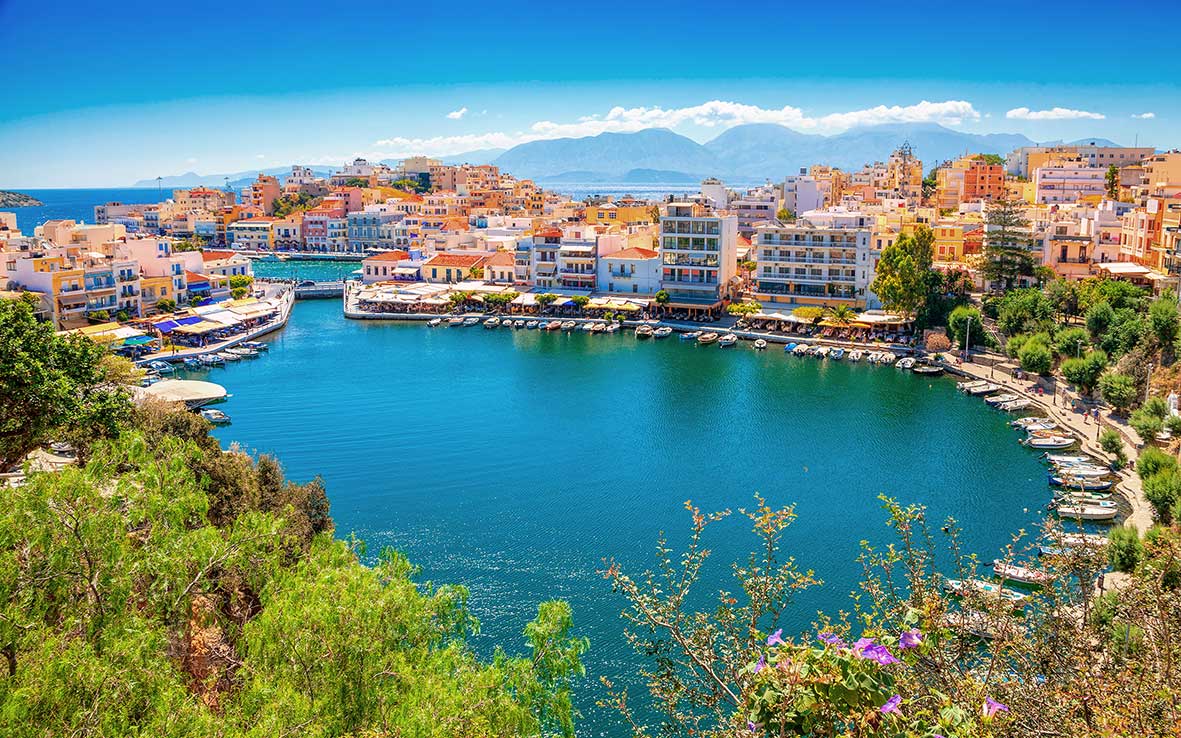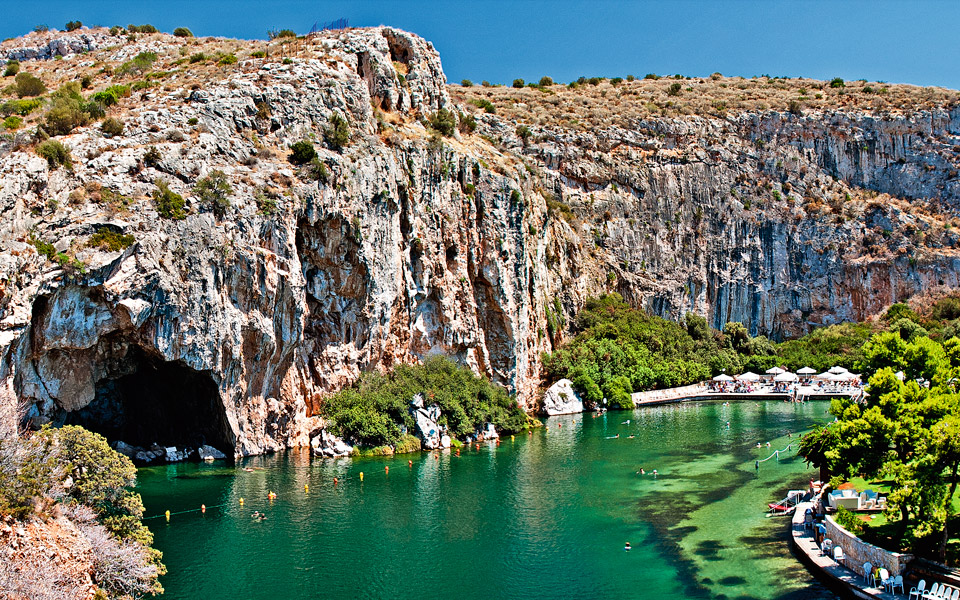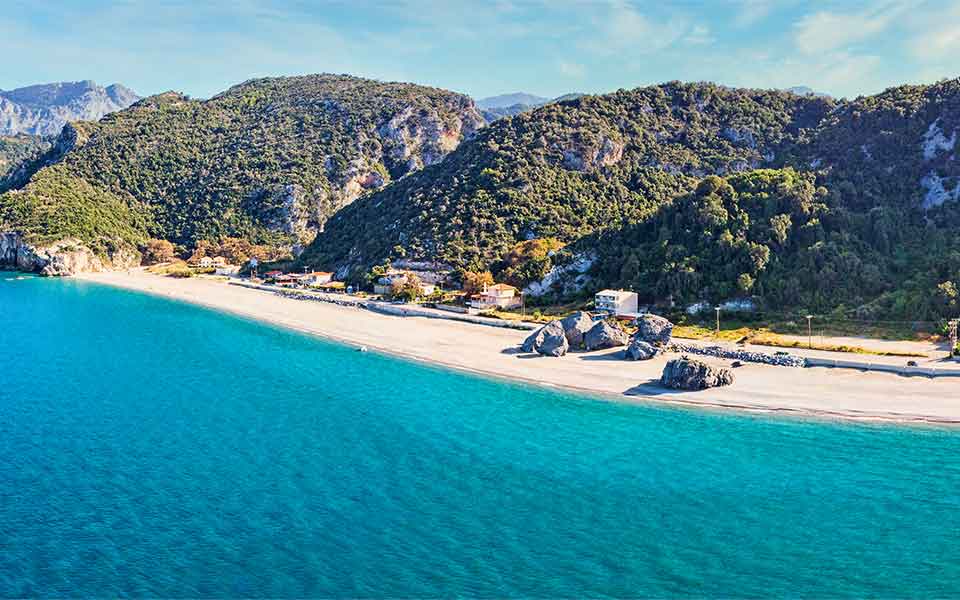As winter marches on in the northern hemisphere and the recent festive celebrations fade into memory, now is the time to take stock and make plans for the year ahead.
For those of us in this part of the world, January is usually the time to start thinking about our summer vacations, the perfect salve to those post-Christmas blues. Indeed, the first month of the year has always been the busiest month for holiday bookings, as sun-starved northerners shop around for the best deals on destinations and flights.
With good reason, Greece has always been near the top of the tree when it comes to popular travel destinations. There’s nothing new in that you say, but, according to the frenzy of articles in the international press in recent weeks, 2023 is shaping up to be a bumper year like no other.

© Shutterstock
Year-round destination
Famed as a sun-drenched location for beachside holidays in the summertime, Greece is fast becoming known as a year-round destination, not only offering northern Europeans (and others) a much-needed dose of sun in the depths of winter, but also serving up a wide range of attractive destinations in its hitherto unspoiled mountainous regions.
Skiing anyone? A recent study by German-based travel booking company Holidu discovered that Greece is the most affordable skiing destination in Europe, with average daily costs a staggering 200 euros cheaper than the more upmarket resorts in the Swiss Alps. From Mount Parnassos and Pelion in central Greece to Metsovo and Kaimaktsalan in the far north, Greece has ski slopes to suit every level.
For those on the lookout for a bit of winter sun, Holidu has launched a campaign to sell accommodation packages in Mediterranean destinations, showcasing eastern Crete’s Aghios Nikolaos as Europe’s “warmest destination.” With an average winter temperature of 16.4C, and 261+ hours of sunshine, the laidback seaside town is the ideal place for long, leisurely strolls and sightseeing in the surrounding Lasithi region.
If you’re looking for something a bit more urban, CNN Travel recently named Thessaloniki as one of Europe’s best city-break destinations. Citing its famous restaurant scene and rich variety of archaeological sites and museums, Greece’s “queen of the north” is more enticing than ever, thanks its soon-to-be-opened metro system, linking the airport to the city center.

© Shutterstock
A growth market in wellness tourism
According to Spanish magazine Hosteltur, Crete is currently among the world’s top 10 destinations for adventure, nature and wellness tourism. Ranked alongside the likes of Bali in Indonesia, and Portugal’s Algarve, Crete continues to be the “jewel in the crown” when it comes to Greek tourism, offering visitors an unparalleled variety of holiday experiences, from bucolic mountainside villages to popular coastal resorts.
Indeed, Greece boasts hundreds of thermal springs, making it an attractive option for those wishing to invest in the rapidly expanding global health and wellness tourism market. While Greece does not currently have the necessary infrastructure to accommodate millions of tourists willing to pay handsomely for such services – a whopping trillion dollars globally over the next five years – municipalities across the country are scrambling to develop spa complexes and specialist resorts in their respective regions; the advantage being that they can operate on a 12-monthly basis.
For those wanting to beat the crowds this summer, CNN Travel recently listed Skyros among Europe’s top 10 hideaway islands. Highlighting its secluded beaches, well-preserved Byzantine castle, and wild horse – one the rarest equine breeds in the world – the island has largely gone under the radar thanks to its more more popular neighbors, Skiathos and Skopelos, both famous for being the filming destinations of the 2008 hit musical “Mamma Mia!”

© Shutterstock
Lights, camera, action!
Speaking of movies, a relatively recent phenomenon, albeit hugely influential, is the country’s growing appeal as a top filmmaking destination, showcasing its stunning landscapes and cityscapes to new audiences around the world. Having escaped the worst of the Covid-19 pandemic, and thanks to a raft of economic incentives, Greece became a surprising new hub for mega-budget movie productions, as reported by Fortune magazine in 2021, creating a positive domino effect.
Among its many advantages, filmmakers often cite Greece’s long hours of sunshine as a key draw, enabling production crews to achieve more filming each day on set, thus bringing overall production costs down. Some of the latest productions filmed in the country include the much-anticipated action movie “Tin Soldier,” starring Robert De Niro, and the gangster flick “Barracuda,” featuring Antonio Banderas.
Earlier this month, The Guardian newspaper published its top travel picks for 2023, citing the small and (more-or-less) vehicle-free island of Spetses as the filming location of two recent Hollywood productions: “Glass Onion: A Knives Out Mystery,” and Maggie Gyllenhaal’s directorial debut “The Lost Daughter,” starring Oscar-winner Olivia Colman. Both films are available on Netflix.
Last summer, it was reported that the third installment of Nia Vardelos’ “My Big Fat Greek Wedding” franchise will start filming on Corfu later this year.
Unrivalled hospitality
Greeks are renowned world over their warmth and hospitality. Indeed, at this month’s Traveller Review Awards, organized by the travel booking platform Booking.com, the northwest region of Epirus came second in the category for the world’s most hospitable region, based on customer reviews.
At the same awards, Greece also picked up plaudits for accommodation and other travel services, including car rentals and airport taxis.
In terms of overall customer satisfaction, Greece once again tops the bill of Mediterranean countries, according to a recent report by the Institute of the Greek Tourism Confederation (INSETE). Based on customer feedback, gathered from hundreds of social media platforms, hotel review websites and online travel agents, tourists continue to rate the country highly for its services, and, most importantly, value-for-money, which, in this time of economic hardship, could give the tourist industry in Greece a real competitive edge over its neighbors in the coming months.












